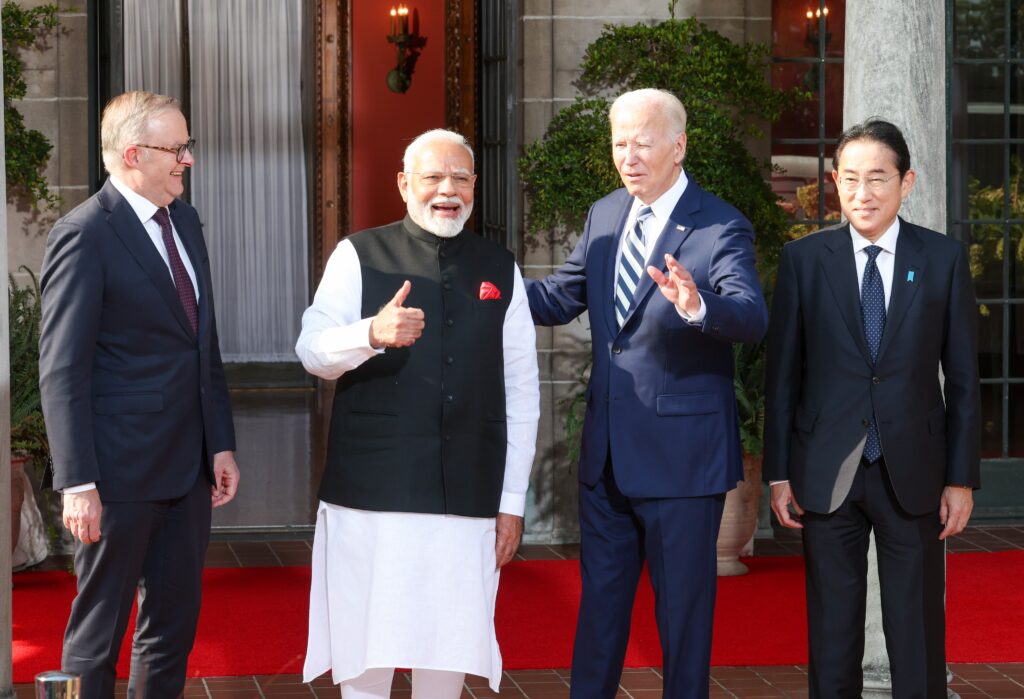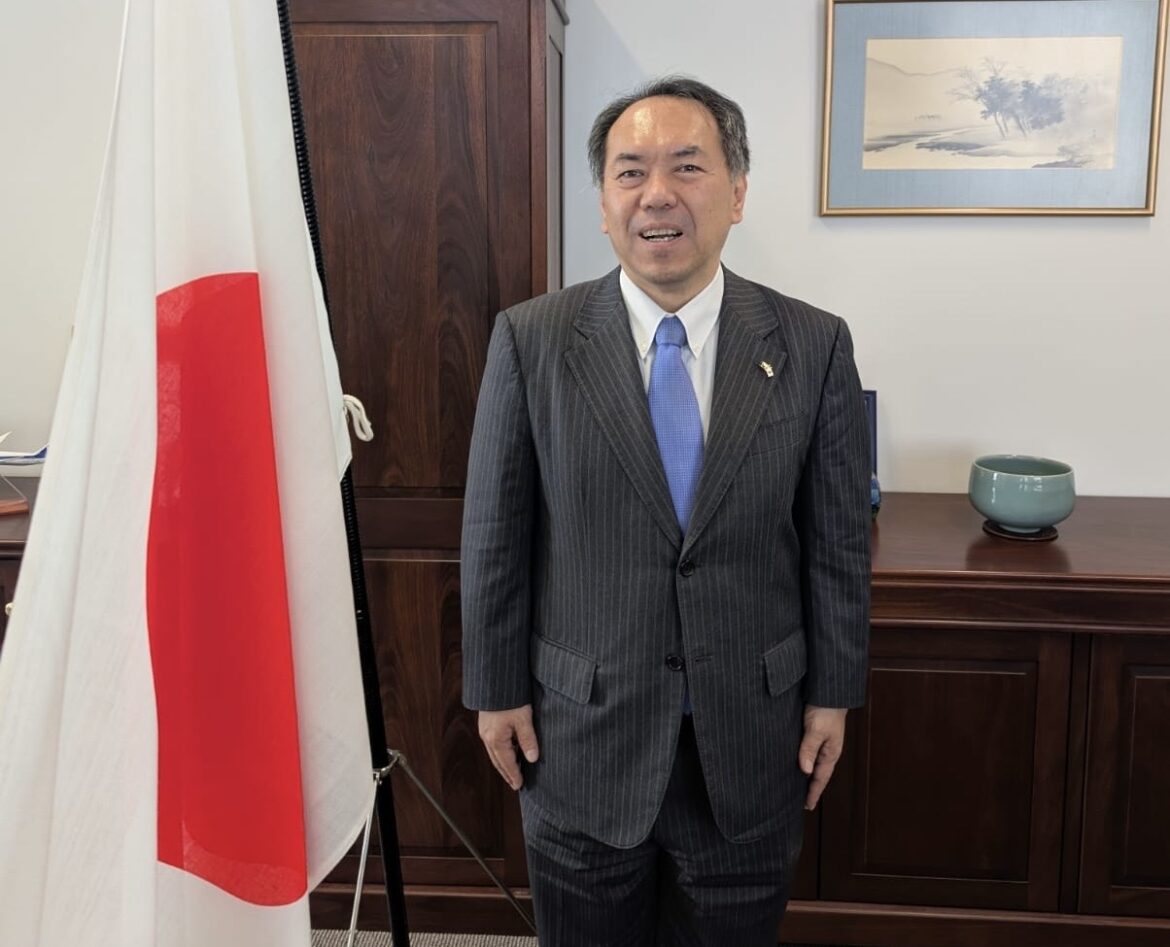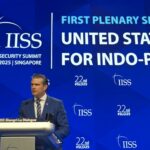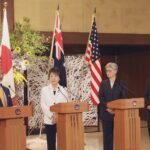Reflecting on the evolution of the Quadrilateral Security Dialogue (Quad), comprising Japan, India, Australia, and the United States, Japan’s Consul-General in Perth, Atsushi Karimata emphasized that cooperation among member nations has “gradually strengthened over time,” guided by a shared vision of regional stability, prosperity, and peace.
In an exclusive interview with South Asian Herald on June 11, 2025, at the Consulate General in Perth, Karimata reaffirmed Tokyo’s enduring commitment to a free, open, and rules-based Indo-Pacific, as India prepares for the next Quad Leaders’ Summit in New Delhi, later this year.
“This principle of a free and open Indo-Pacific remains our foundational commitment. All our efforts come back to that,” he said.
From Vaccines to Cybersecurity: A Widening Scope of Cooperation
One of the most memorable moments of Quad collaboration, he noted, was the COVAX vaccine partnership during the COVID-19 pandemic, which saw Quad nations working together to deliver life-saving vaccines to countries including Cambodia.
The partnership has expanded in scope from maritime security to digital cooperation, and from disaster relief to building climate resilience,” said Karimata, noting that the Quad’s agenda now also encompasses critical and emerging technologies, climate change, cyber and space cooperation, resilient infrastructure development, and humanitarian assistance.
This expanded scope has also included joint maritime domain awareness training, such as programs conducted in Kuala Lumpur with ASEAN partners and Coast Guard officials.
“These activities sometimes involve all Quad partners, and sometimes occur bilaterally but always toward a shared goal,” he said.

He also referenced Japan’s humanitarian assistance during the March 2025 Myanmar earthquake, describing such responses as essential parts of ongoing regional solidarity. “We remain committed to peace, prosperity, and expanding cooperation — not just among governments, but among people,” he added.
Diplomacy Rooted in Regional Frameworks
While the Quad remains central, Japan is also deepening its engagement with existing regional forums such as ASEAN, the Pacific Islands Forum, and the Indian Ocean Rim Association (IORA). Japan’s Indo-Pacific activities are now closely aligned with ASEAN’s Outlook on the Indo-Pacific (AOIP), reinforcing the importance of multilateral cooperation.
“Maintaining the rule of law and the free flow of goods, services, and people is vital,” Karimata said.
Building on this, he highlighted Japan’s broader vision for regional ties noting “We remain committed to peace, prosperity, and expanding cooperation not just among governments, but among people.”
“Any attempt to change the status quo by force or through coercive actions, especially in areas like the South China Sea, must be firmly opposed. Respect for the rule of law is non-negotiable,” he said.
Investing in People: STEM and Cultural Exchange
The Consul General also highlighted Japan’s commitment to people-to-people diplomacy, pointing to the expansion of STEM scholarship programs that were originally part of the Japan–US framework but are now extending to other Quad countries, including India.
“Friendship and prosperity begin with people. These exchanges help build priceless experiences for young people across borders,” he reflected.
He added that Japan also places a high priority on educational and cultural partnerships — elements often underemphasized in strategic dialogues but essential for long-term regional trust.
Australia–Japan: Trust and Transformation
While the interview focused on Indo-Pacific diplomacy, it’s important to contextualize Karimata’s remarks within his broader vision for Western Australia–Japan ties. Having assumed office in April 2025, Karimata described Perth as “one of the most beautiful cities in the world,” and underscored his focus on people, prosperity, and peace.
“Australia is an important security partner to Japan. With our common values of the rule of law and democracy, it is necessary for us to deepen cooperation to maintain peace and stability in the region,” he stated.
Japan is also working to expand its economic ties with Western Australia — moving beyond minerals and energy into decarbonisation and critical minerals. In 2026, Australia and Japan will mark 50 years since signing the NARA Treaty, and Karimata hopes to use that milestone to deepen bilateral ties.
Major events such as the Japan–Australia FIFA World Cup qualifier (June 2025) and the Australia–Japan Joint Business Conference (October 2025) are seen as opportunities to strengthen both economic partnerships and cultural exchange.
A Shared Democratic Vision
Karimata’s reflections mirror sentiments shared by Australian Senator Varun Ghosh, who also spoke to South Asian Herald earlier this year on Australia’s role in the Quad. “Quad nations share democratic values and a collective responsibility to support peace and opportunity in the Indo-Pacific,” Senator Ghosh noted.
Karimata emphasized that the future of the Indo-Pacific lies not just in strategy but in solidarity. Friendship and prosperity must be shared across borders, generations, and communities. That is the true foundation of peace,” he said.
As India prepares to host the 2025 Quad Summit, voices from Japan and Australia together underscore a clear message: security, cooperation, and people-first partnerships will be the defining features of Indo-Pacific engagement in the years ahead.
“We remain committed to peace, prosperity, and expanding cooperation not just among governments, but among people,” Karimata concluded.
A Shared Message from Tokyo to the Indo-Pacific
Karimata’s remarks echo the Quad Foreign Ministers’ Joint Statement from January 2025, which reaffirmed a “shared commitment to strengthening a Free and Open Indo-Pacific where the rule of law, democratic values, sovereignty, and territorial integrity are upheld and defended.”
U.S. Secretary of State Marco Rubio, Indian External Affairs Minister S. Jaishankar, Australian Foreign Minister Penny Wong, and Japanese Foreign Minister Iwaya Takeshi firmly opposed “unilateral attempts to change the status quo by force or coercion,” emphasizing peaceful dispute resolution and the importance of cooperation in maritime security, technology, and resilient supply chains.
As India prepares to host the 2025 Quad Summit, Japan’s message aligns with the Quad’s goals of deepening regional cooperation to ensure an Indo-Pacific that is “inclusive, resilient, and founded on mutual respect.”






